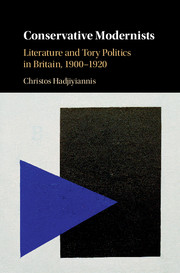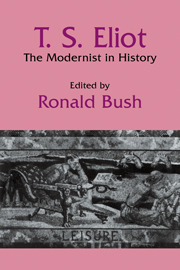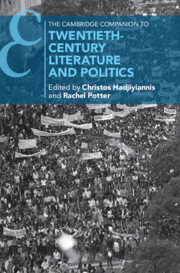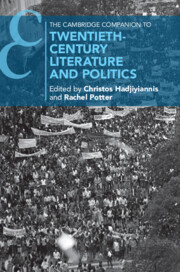Conservative Modernists
Despite sustained scholarly interest in the politics of modernism, astonishingly little attention has been paid to its relationship to Conservatism. Yet modernist writing was imbricated with Tory rhetoric and ideology from when it emerged in the Edwardian era. By investigating the many intersections between Anglophone modernism and Tory politics, Conservative Modernists offers new ways to read major figures such as T. S. Eliot, Ezra Pound, T. E. Hulme, and Ford Madox Ford. It also highlights the contribution to modernism of lesser-known writers, including Edward Storer, J. M. Kennedy, and A. M. Ludovici. These are the figures to whom it most frequently returns, but, cutting through disciplinary delineations, the book simultaneously reveals the inputs to modernism of a broad range of political writers, philosophers, art historians, and crowd psychologists: from Pascal, Burke, and Disraeli, to Nietzsche, Le Bon, Wallas, Worringer, Ribot, Bergson, and Scheler.
- Offers new ways to read major figures such as T. S. Eliot, Ezra Pound, T. E. Hulme, and Ford Madox Ford and also highlights the contribution to modernism of lesser-known writers such as Edward Storer, J. M. Kennedy, and A. M. Ludovici
- Provides detailed analysis of the social, political, and intellectual contexts of pre-Great War England, offering short, concise, summaries of key events, such as the 1911–12 Lords crisis
- Re-examines known sources in a new light, and finds overlooked outposts of modernism in journals such as The Commentator and Cambridge Magazine
- Draws on archival study and recently unearthed material
Product details
July 2025Paperback
9781108444033
0 pages
Not yet published - available from July 2025
Table of Contents
- Preface: modernists against modernity
- 1. Conservative party crisis: Tory propaganda, imagist poetics
- 2. Bringing poetry and politics back to Earth: Tory ideology and classical modernism
- 3. The writer as conservative statesman: modernist theories of inspiration
- 4. Against representation: conservatism and abstract art
- 5. War, duty, sacrifice: anti-pacifism and objective ethics
- Afterword: afterlives.





